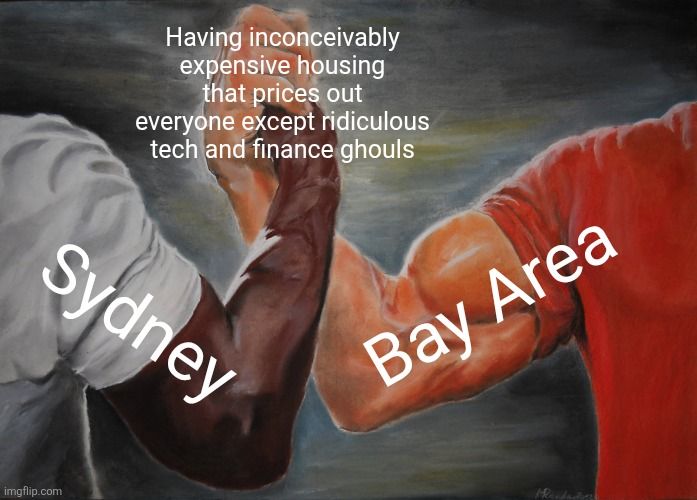MU Peeves Thread
-
@tsar said in MU Peeves Thread:
@Jumpscare said in MU Peeves Thread:
in 2 years
Oh my god has it been open that long? I feel like we were JUST reading posts about you developing it. Two years is great, congratulations!
Thanks! And congrats on launching yours!
Running a game is a far greater responsibility than developing a game. Once it’s live, your players will be playing even when you have IRL responsibilities. There’s always the looming thought in the back of my mind that I need to check in when I’m not home, because what if a bug happens that breaks the game, or some troll has shown up overnight?
I try to relax, even though there have been 2 instances in the past 2 years where I decided that I needed to go to sleep and that I’ll check in on the morning, only to wake up to a disaster I could’ve fixed the night before, haha.
Just remember to forgive yourself and keep going forward. Some beloved players will just stop playing one day. And that’s okay.
-
I’m a big fan of each room having an RP purpose. Maybe it says something particularly cogent about the setting (there’s a monument about a past incident or historical personage), maybe it’s a “critical” RP location (the mess hall on a military game), or maybe it’s a place I think could host RP even if it’s not typical (a dingy alley in a Steampunk game).
But I believe that each and every room should have 2-3 RP Hooks in it. So you’ve got a laundromat, because people like RPing talking to strangers while their undies tumble – why not note that one of the driers sometimes chews up clothing, or that there’s a phone number written inside the door of one of the washers in permanent marker, or there’s a camera in one corner with a screen showing that everyone in the laundromat is being recorded. Little things that people can integrate into their RP and use to spark IC discussion or action.
Whether you’re Grid-based (like most MU*s used to be) or Locations-based (like Ares), this style works, and can turn what could just be vague names that could be drawn out of a hat to run scenes in into something that can help inspire RP.
-

I feel like this sums up several many MUSH interactions I’ve had with people over the years
-
@Ashkuri said in MU Peeves Thread:

I feel like this sums up several many MUSH interactions I’ve had with people over the years
I feel attacked and my only logical response is to do another forum coup.
-
@Ashkuri said in MU Peeves Thread:

I feel like this sums up several many MUSH interactions I’ve had with people over the years
The one I need to keep reminding myself of is “Your feelings are valid. But managing them is also not my responsibility.”

-
Belated reply. Put me in the “prefer the grid” group. I very much dislike off-grid RP rooms. Why even log into a server? You might as well just be RPing on Discord or by email at that point. I am fine with small or large grids, but I prefer location based.
-
@MisterBoring said in MU Peeves Thread:
@somasatori I really feel like most grid bloat in most games is from PC builds from idle / dead / retired PCs that just didn’t get cleaned up after they leave. I think most games just forget to clean that stuff up when characters idle out, but I have seen a few that will post up a bbpost about PC owned grid spaces that will be removed in an effort to allow other PCs to claim them if they’re popular.
I allowed myself to be weird and tyrranical about the grid, and didn’t let people just build, and when people left their houses and businesses stayed in place to be sold/rented out again. Buildings didn’t just disappear, but there weren’t that many empty ones either and I sort of hoped that the PCs might fight over some of the best houses in the city.
-
@Gashlycrumb said in MU Peeves Thread:
when people left their houses and businesses stayed in place to be sold/rented out again. Buildings didn’t just disappear, but there weren’t that many empty ones either and I sort of hoped that the PCs might fight over some of the best houses in the city.
From a game design perspective, this works better if there’s a concrete economy rather than the usual abstract ones that are representative in most MUSHes. Not sure what type of game you were running, but something with discrete numbers to represent your characters’ cold, hard cash makes this more worthwhile. Systems like WoD, GURPS, and others that have a merit/perk/boon referring to wealth flatten the experience since there’s a lot of room between (in WoD) Resources 2 to Resources 3. That could be a small luxury apartment or a nice rental house in a not-so-rich part of town.
Same with resource trading. Most smuggler or equipment-provision characters in abstract wealth games don’t have any real mechanical function, as you can usually just buy stuff up with your Resources background/merit/whatever in your own stockpile so long as it doesn’t require additional skills or black market connections or something.
I’m going to mark my own MU peeve and say that resources and equipment house rules always fucking suck. The worst options are deeply reactionary (buying mundane equipment with XP to keep your thumb on the players), but even the best ones become super weird. If you have 2 dots of resources worth of stuff to buy every week or month, I always feel like I’m wasting it if I’m not getting new stuff.
-
@somasatori said in MU Peeves Thread:
The worst options are deeply reactionary (buying mundane equipment with XP to keep your thumb on the players)
Referencing any games in particular there, Soma? >_>
-
@Pavel said in MU Peeves Thread:
@somasatori said in MU Peeves Thread:
The worst options are deeply reactionary (buying mundane equipment with XP to keep your thumb on the players)
Referencing any games in particular there, Soma? >_>
No, no, not at all

-
@somasatori Yeah, I hate abstract economic systems as well. Fluff needs crunch to support it. Without the crunch, it’s all just “I shot you with my laser. Nuh-uh, because I had my laser deflector field up!”. The only abstract money I have been somewhat OK with was based on cascading dice, where items had a cost and you had to roll over the cost with the die your current money die. If you failed, you still bought it, but you dropped a die size. If it was impossible to roll over the cost (so costs equal to or higher than your current die size), you simply couldn’t buy it. It made you somewhat take into consideration the economics of things. “Hmmm, I have a d10 money die. Do I want to risk buying that cost 8 item?”
-
@somasatori Yeah, I very much see your point.
Since the game was low-fantasy medieval-stasis setting, getting the best house in the city would have more to do with status than money, and the reality of housing shortages in a walled city was something more worth representing. Or so I felt. Not that it ever actually mattered.
-
@Gashlycrumb said in MU Peeves Thread:
the reality of housing shortages
I’ll have to make a note to include that when I launch my Vampire the Masquerade: Sydney by Night game.
-
-
has anyone ever ghouled a kangaroo? serious question
-
@Pavel Would it be fun in that context?
-
@Gashlycrumb Well, it’s not fun to live it.
-

-
-
The real problem with WoD Austrailia is that WoD is supposed to be real world bads turned up to 11, and Austriailia is already a giant ‘kill all humans’ zone, so when you turn that up to 11…